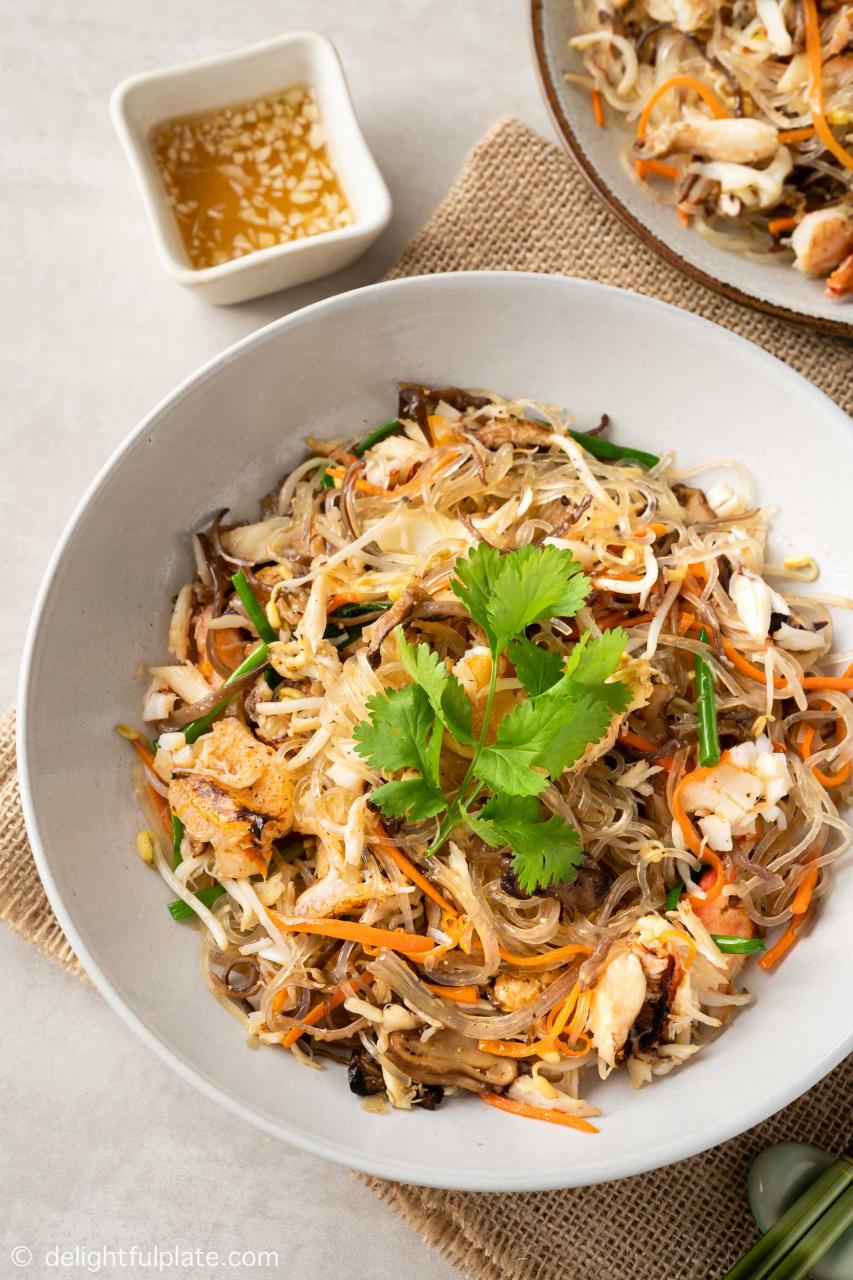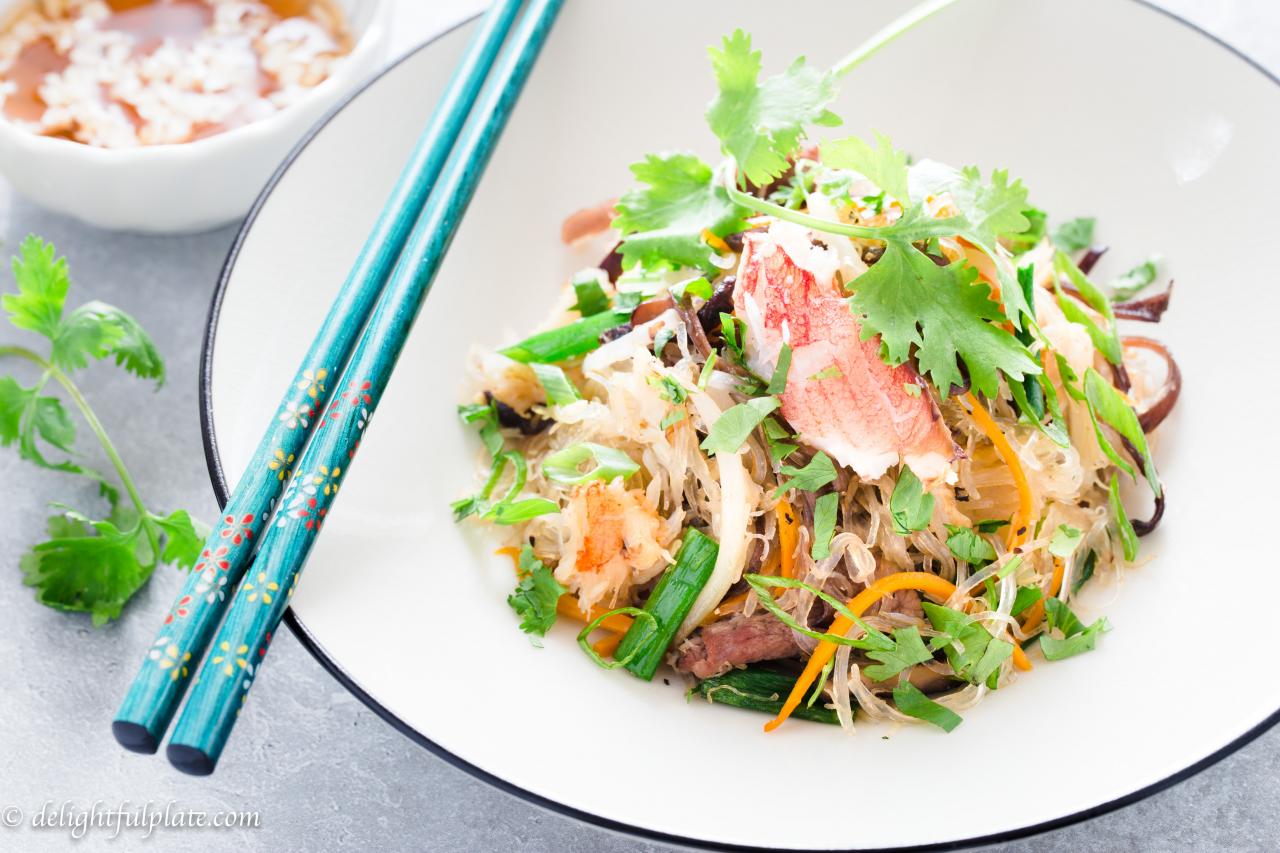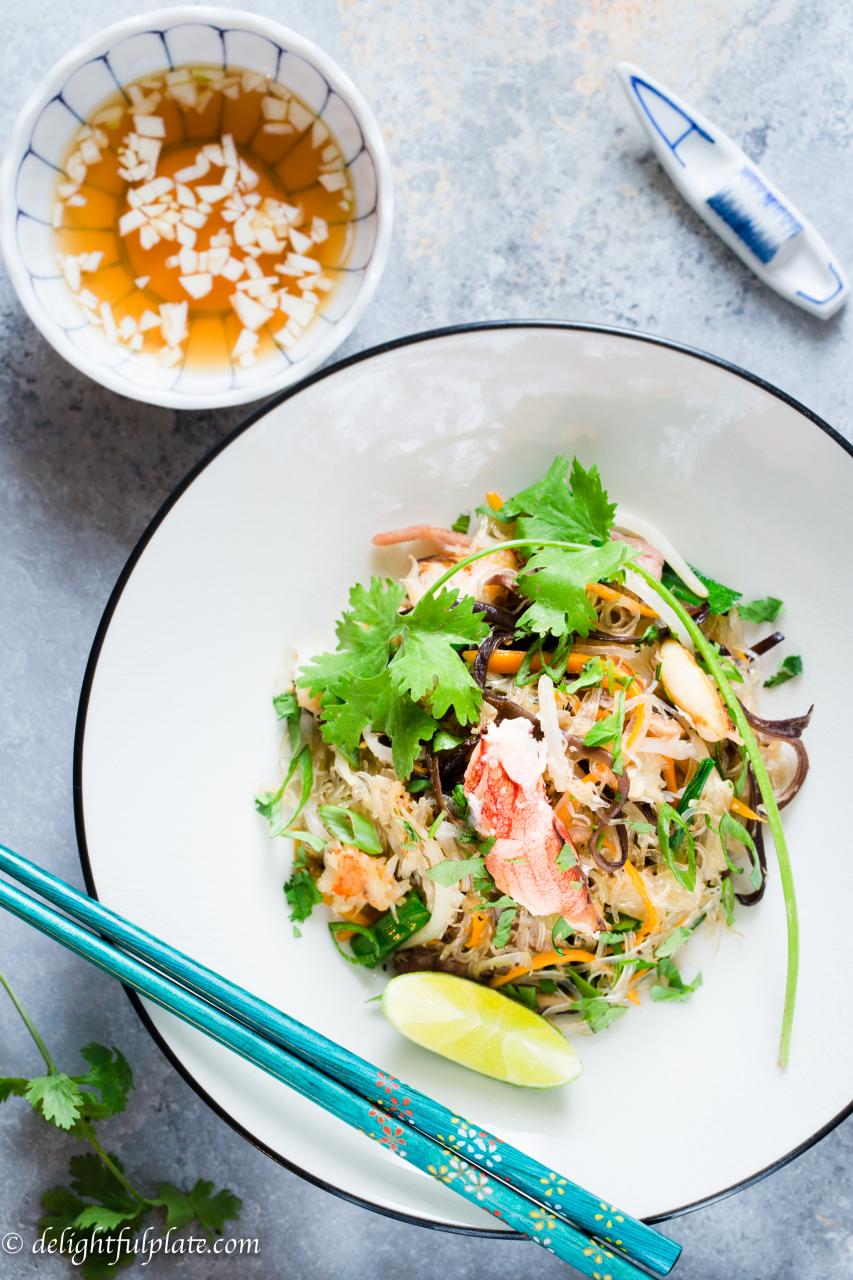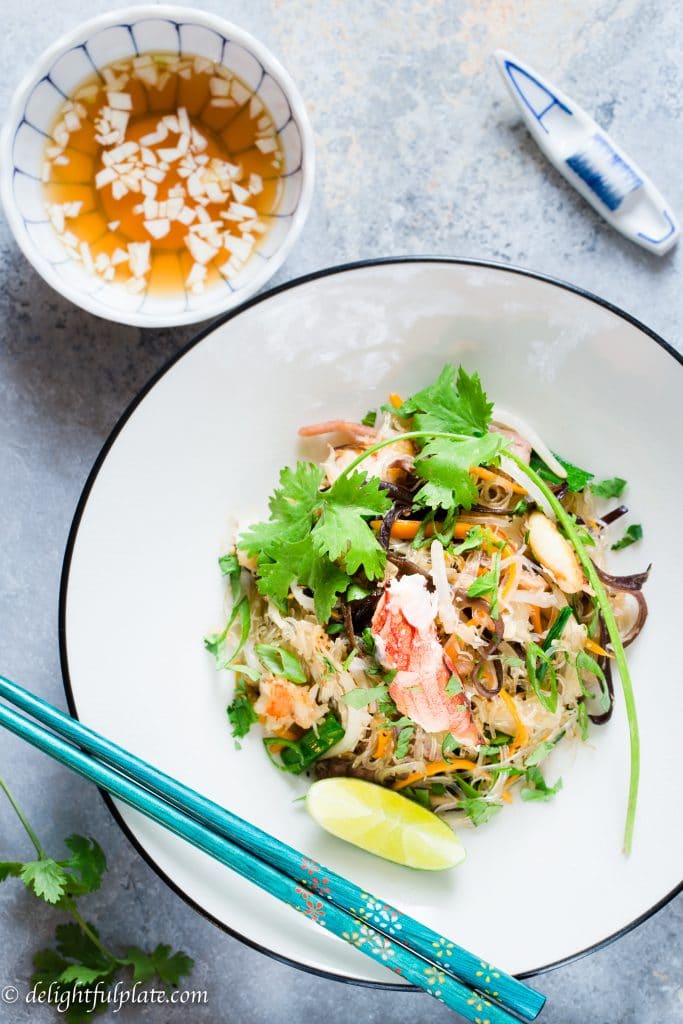Vietnamese Crab Cellophane Noodles (Mien Xao Cua) is a traditional dish which appears in daily meals as well as special occasion meals. The dish is incredibly delicious with delicate crab meat, soft translucent glass noodles, crunchy vegetables and refreshing lime fish sauce dressing.

Note: this mien xao cua recipe was originally posted on 8/14/2017. It has been updated with better photos and revised instructions on 1/12/2021. The old photos which you can see below didn’t do the dish justice :).
Bạn đang xem: mieng xao cua
What Are Cellophane Noodles?
Cellophane noodles (miến in Vietnamese) are a type of transparent noodles which is made from starch. They also go by some other names such as glass noodles and bean thread noodles. In Vietnam, they can be made from cu dong rieng (sorry I don’t know the English translation!) or mung bean.
This type of noodles also appears in other Asian cuisines such as Chinese and Korean though they may bear some differences. For example, Korean glass noodles are thicker and chewier than Vietnamese cellophane noodles.
In Vietnamese cuisine, we use cellophane noodles to make both noodle soup dishes and dry noodle dishes. Regardless of the dishes, cellophane noodles become soft once cooked and absorb all the flavors.
The recipe I’m sharing today is stir fried cellophane noodles with crab and veggies. We call it miến xào cua and it is often a must in our family Lunar New Year banquet. Once you make this dish at home, I guarantee you will never want to try it in restaurants. I’m always amazed at how few crab meat the restaurant version contains.
Watch How to Make Mien Xao Cua
Ingredients
Tham khảo thêm: Bạn có biết Tự tay làm chả lụa ngay tại nhà chỉ với chiếc máy xay sinh tố
This mien xao cua recipe is exactly how my mom cooks it at home. The ingredients are cellophane noodles, crab meat, beansprout, dried wood-ear mushroom, dried shiitake mushroom, and carrot. You can also include some thin slices of pork in the dish as well.
Cellophane noodles
You can find cellophane noodles at Asian grocery stores. It’s best to buy the Vietnamese or Chinese one. The Korean glass noodles will be too chewy for the dish. Serious Eats has a noodle shopping guide which is informative and may help you find the right types of noodles.
In Vietnam, it goes without saying that stir-fried crab cellophane noodles requires chicken stock, which makes the noodles glossy, moist and more flavorful. If you don’t have any stock or broth on hand, I recommend using plain water and adding some pork slices to the stir-fry like in the photo below. Those thin slices of pork will create juice and compensate for the lack of stock/broth.
Fresh crab meat
The star of the dish is fresh crab meat and in the U.S., I find that dungeness crab is undoubtedly the best choice for this dish. It is very similar to Vietnamese crabs with a sweet taste and firm texture (not as firm as king crab though).
However, I understand that it is not always possible to find this particular type of crab. If you are not able to buy it, other varieties such as snow crab, blue crab or canned fresh crab meat work fine too. I have tried using them all to make this dish.
Other ingredients
You need to soak dried wood-ear mushroom and shiitake mushroom in hot water for about 5-7 minutes until they are fully rehydrated. Then you just need to slice them thinly.
Carrots should be peeled and julienned. As for mung bean sprouts, someone who is very particular about this dish will pick out and discard all the yellow small beans. We only need the crunchy white stems, but if you don’t have time for this, no need to do this step.
Xem thêm: Bạn có biết Bánh Bao Nhân Đậu Xanh
You can choose whether to prepare the lime fish sauce dressing or not. I personally like to add it when eating mien xao cua because of the brightness it brings to the dish. The dressing is easy and quick to make anyway.
Cooking Notes

Cellophane noodles require soaking in cold water for about 15-30 minutes (depending on brand), or just until they become soft. They can clump quite easily when we stir-fry them. You should not stir-fry them by themselves in the pan to avoid big clumps of noodles which nothing can untangle.
Besides, once you add cellophane noodles, you will need to work quickly because the longer they are in the pan, the more likely they form clumps. Therefore, make sure you have all ingredients prepared and lined up before stir-frying.
My final tip for making this crab and glass noodles stir-fry is to use a large pan since we have quite a lot of ingredients and we need to stir and mix them constantly. Using a nonstick pan will make it easier for you to handle the noodles and prevent sticking. All my large pans are stainless steel, so I kinda have no choice :).
Related Recipes
More Vietnamese recipes for Lunar New Year banquets:
Other Vietnamese noodle recipes you may be interested in:
- Fish Cake Noodle Soup (Bun cha ca)
- Fried Fish Noodle Soup (Bun ca)
- Vietnamese Chicken Combination Noodle Soup (Bun thang)
I’d love to hear what you think about the dish, so please feel free to leave a comment and a rating if you have tried it. New recipes are added every week so let’s connect on Facebook, Youtube, Pinterest and Instagram for the latest updates. You can find my collection of Vietnamese recipes here.

